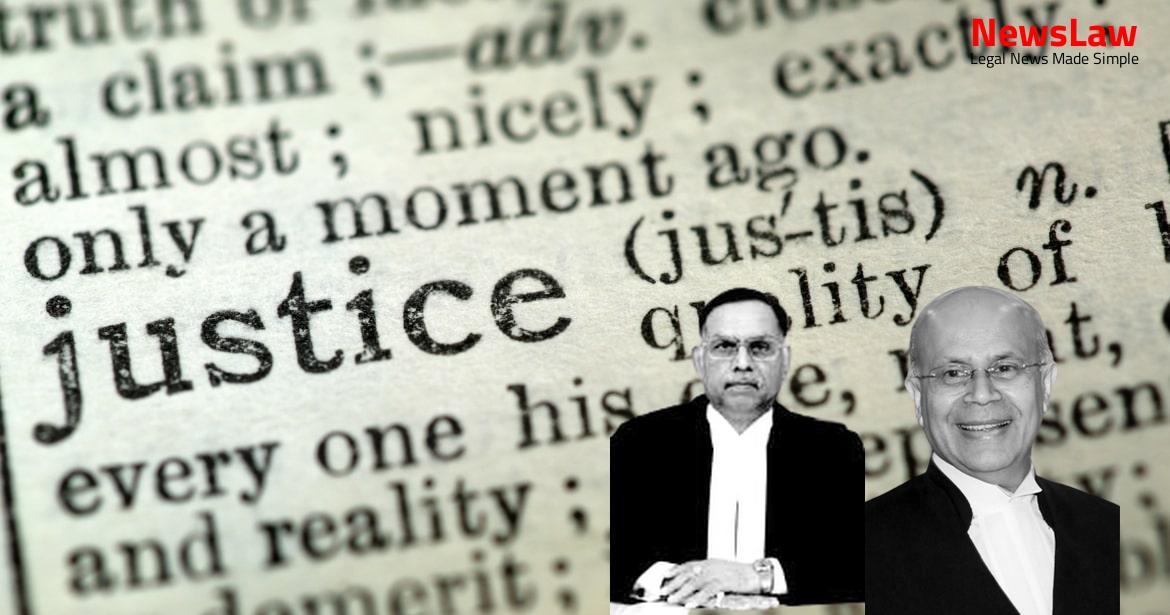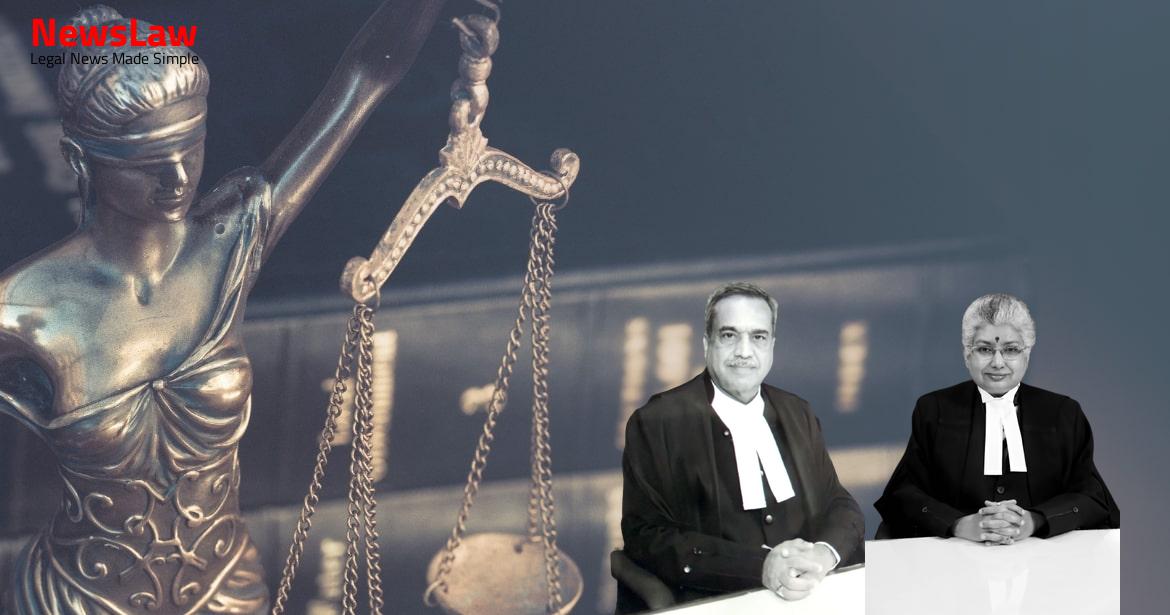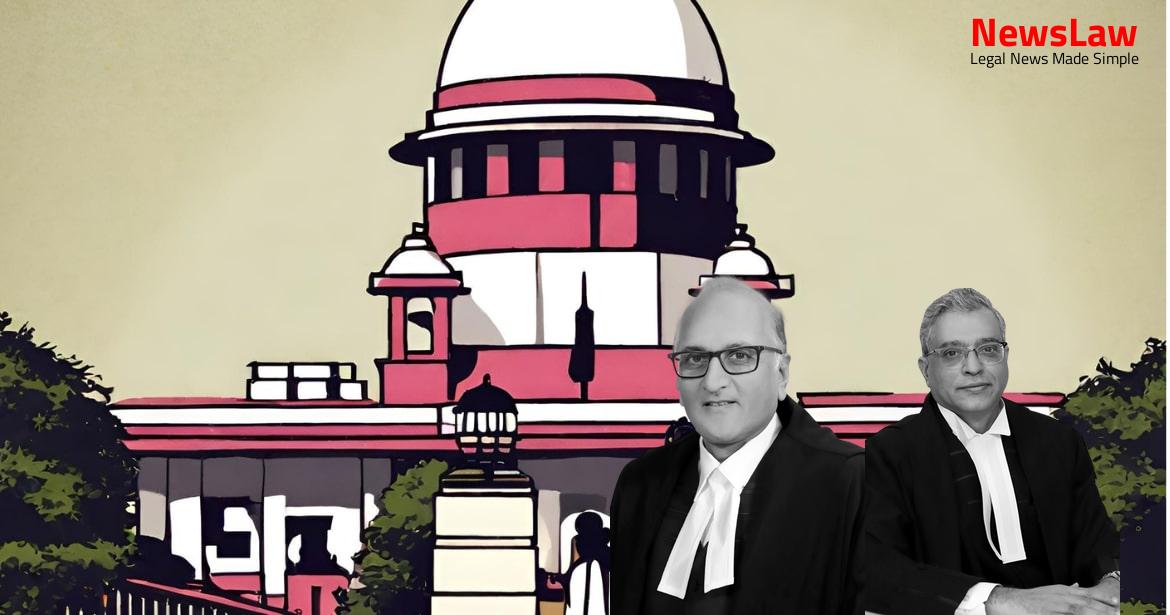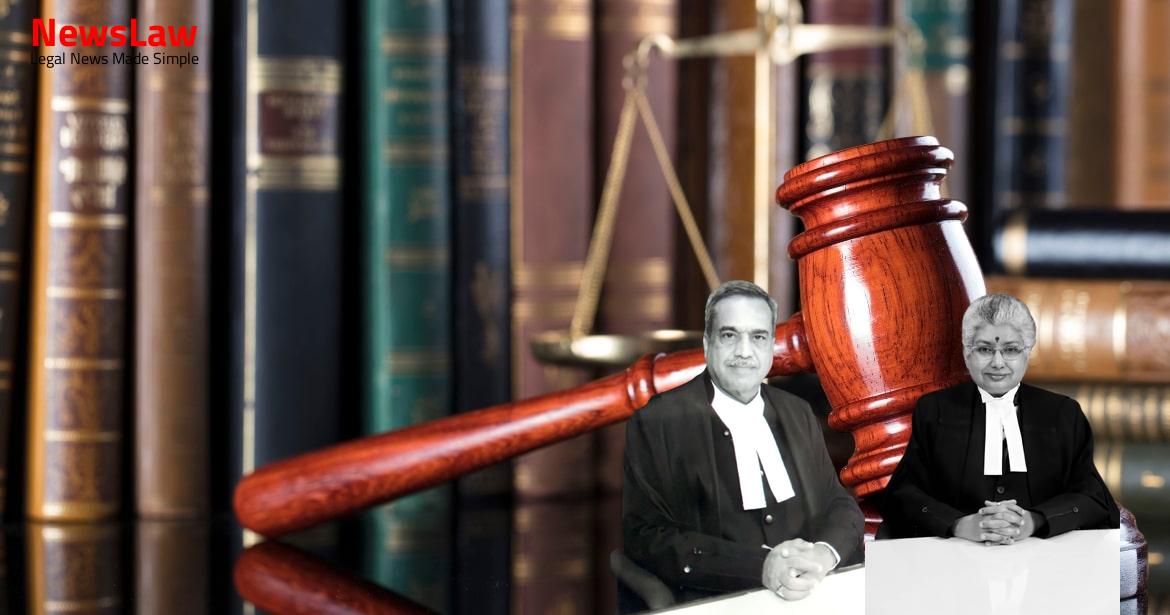Delve into the detailed legal analysis conducted by the court in a recent case related to copyright infringement. The court’s examination of the limitation period and the importance of a clear threat to the plaintiff’s copyright rights before initiating legal proceedings sheds light on crucial aspects of intellectual property law. Stay informed about the complexities of legal timelines in copyright disputes.
Facts
- First defendant denied the allegations made in the plaint and claimed to have been exercising satellite broadcasting rights acquired under the deed of assignment since 21.03.1997.
- Defendant No.1 received a legal notice from the plaintiffs and claimed to have acquired satellite broadcasting, Pay TV, and Cable TV rights of the 16 Hindi films from defendant No.2, M/s. B.N.U. & Co. through a deed of assignment dated 21.03.1997.
- Plaintiffs refuted the facts in the notice from the first defendant.
- An appeal has been filed by the defendant against the judgment of the High Court of Judicature at Hyderabad dated 11.03.2016.
- The suit involved parties referred to as described in the suit.
- Plaintiffs learned about a Small Causes Suit filed in Bombay which alleged forged documents assigned by D. Suresh Babu to defendant No.4 regarding satellite and Doordarshan rights.
- Original Suit No.392 of 2003 was filed by the plaintiffs before the Chief Judge pleading the assignment of rights to defendant No.4 on 10.10.1994.
- Defendant No.3 also filed a written statement similar to defendant No.1.
- Assignment deeds dated 23.12.1994 were alleged to be manufactured by the plaintiffs to claim rights in the scheduled films.
- Plaintiffs issued a public notice regarding the 16 Hindi films and lodged a complaint about forgery.
- Legal proceedings and criminal complaints were filed by both plaintiffs and defendant Nos.3 to 8.
- The High Court held that the suit filed by the plaintiffs was not barred by limitation as the cause of action arose when defendant No.1 issued a notice dated 14.10.2003.
- The High Court allowed the appeal filed by the plaintiffs against the trial court’s judgment dated 09.03.2011, which dismissed the suit on grounds of limitation.
- Issue No.3 was decided in favor of the plaintiffs, and the transactions alleged between defendant Nos. 4 and 3 regarding 16 films were not proven.
- Issue Nos. 4 to 9 were answered in favor of the plaintiffs, establishing the plaintiffs’ claim over the suit scheduled films.
- The agreement dated 23.12.1994 was proved, while the defendants failed to prove the assignment dated 10.10.1994.
- The High Court decreed the suit in favor of the plaintiffs, overturning the trial court’s decision.
Also Read: Interpretation of Lease Agreement and Compulsory Registration
Issue
- The trial court held that the suit was barred by limitation as the cause of action arose in 1995 but the plaintiffs waited for 8 years before taking any action.
- The trial court also considered the issue of res judicata in view of decrees in previous cases.
- The court questioned whether the plaintiffs acquiesced to the infringement of copyright on the scheduled films.
- The claim of Defendant No.1 over the scheduled films was also evaluated by the court.
- The validity and binding nature of the transactions alleged by the plaintiffs was examined.
- The entitlement of the plaintiffs to the delivery of tapes, as well as perpetual injunction, was also assessed.
Also Read: Enhancing Compensation and Modifying Sentences: A Legal Analysis
Arguments
- Plaintiffs filed O.S.No.16 of 1996 against defendant Nos.3,4, and 8 regarding 3 films.
- Counsel relied on the Privy Council decision in Bolo v. Koklan and the SC decision in C. Mohammad Yunus v. Syed Unnissa.
- No right to sue until the right is infringed or there’s a clear threat of infringement by the defendant.
- Defendants filed various suits against plaintiff and others in relation to agreements dated 10.10.1994 and 17.10.1994.
- Defendants claim not proven in the suits, according to the trial court.
- Plaintiffs argue that the suit was filed within the limitation period as no clear infringement threat was made by the defendants.
- Defendants argue that plaintiffs were aware of the infringement but did not act, indicating acquiescence to the claim.
- The High Court found the suit not barred by time after considering the evidence.
- Article 58 of the Indian Limitation Act allows suits within three years of the cause of action.
- Plaintiffs had knowledge of the violation in the year 1995, as per the testimony of PW.1.
- The plaintiff assigned broadcasting rights to defendant No.4 on 23.12.1994 for a period of 9 years.
- Plaintiff assigned satellite and broadcasting rights to defendant No.5 to 8, nominees of defendant No.4, for valuable consideration.
- The plaintiff was not concerned about the telecasting of films during the assigned period.
- Cause of action arose when notice was published in the Film Information Magazine and a reply was received on 27.09.2003.
- Cause of action also arose when a reply dated 14.10.2003 was received from defendant No.1 claiming rights to the 16 films.
Also Read: Exemption from Property Tax for Central Government-owned Buildings
Analysis
- Trial court found that assignment dated 10.10.1994 by D. Suresh Babu to defendant No.4 and assignment dated 17.10.1994 by defendant No.4 to 3 were not proven.
- Trial court held that plaintiffs’ suit was barred by time as they sat over their rights for eight years.
- Cause of action for filing a suit arises when there is a clear threat to infringe a right.
- Defendants failed to establish the execution of the assignment deed dated 10.10.1994.
- Plaintiffs assigned their rights to defendant Nos.5 to 8 for 9 years, thus had no claim during that period.
- Defendants 4, 5, 6, and 8 did not contest the suit by filing a written statement.
- No evidence on record to support the claims of the contesting defendants regarding transfer of rights over the films.
- Plaintiffs’ suit was dismissed by the trial court based on the assignment of telecasting rights on 23.12.1994.
- Plaintiffs’ claim for telecasting rights of the schedule films arose after 22.12.2003.
- Inter se dispute between defendants 4 and 3 was not a cause of action for plaintiffs’ suit.
- Cause of action for the suit only arises when the right asserted is infringed or under clear threat.
- Defendant’s witness also agreed with the cause of action argument.
- Original or authenticated copy of the assignment document was not produced before the court.
- Documents related to the alleged transaction between defendants 4 and 3 were also not produced.
- Trial court’s judgment highlighted the absence of evidence and cross-examination by the plaintiffs.
- Trial court stated that cause of action arose in 1995 when plaintiffs became aware of the defendant’s claim over the films.
- Defendant No.3 indicated that the dispute with defendant No.4 subsided when the suit was returned in 1995.
- In Daya Singh and another vs Gurdev Singh (Dead) by Lrs. and others, (2010) 2 SCC 194, it was established that a right to sue accrues when there is a clear and unequivocal threat to infringe a right of the plaintiff.
- The court emphasized that the right to sue can only be exercised when there is an actual infringement or a definite threat to infringe the plaintiff’s right.
- This ruling underscores the importance of a clear and unequivocal threat to the plaintiff’s rights before the right to sue can be initiated.
- The mere existence of an adverse entry in the revenue records does not give rise to a cause of action
- The suit filed by the plaintiffs is within the limitation period as per the pleadings and facts of the case
- The High Court’s finding that the suit is within limitation is based on a correct understanding of the facts and pleadings
Decision
- The appeal has been dismissed
- No merit found in the appeal
Case Title: M/S. ZEE TELEFILMS LTD. (NOW KNOWN AS ZEE ENTERTAINMENT ENTERPRISES LTD.) THROUGH AUTHORIZED SIGNATO Vs. SURESH PRODUCTIONS REP. BY ITS PARTNER DR. RAMA NAIDU S/O SRI NAIDU (2020 INSC 223)
Case Number: C.A. No.-001716-001716 / 2020



